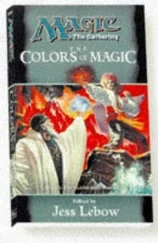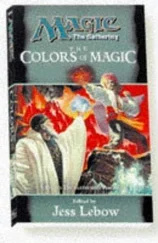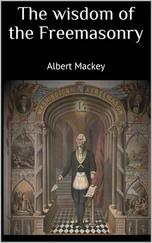Albert Cossery
The Colors of Infamy
The human multitude meandering at the nonchalant pace of summer along the ancient city of Al Qahira’s torn-up sidewalks seemed to be dealing serenely, even somewhat cynically, with the steady, irreversible decay of their surroundings. It was as if all these people, stoically strolling beneath the molten sun’s incandescent avalanche, were, in their tireless wanderings, benignly colluding with some invisible enemy eating away at the foundations of the erstwhile resplendent capital. Immune to drama and devastation, this crowd swept along a remarkable variety of characters lulled by their idleness: workmen without jobs; intellectuals disillusioned with fame; civil servants forced from their offices for want of chairs; craftsmen without customers; university graduates sagging beneath the weight of their futile knowledge; and finally those inveterate scoffers — philosophers in love with their tranquility and shade, who believed that the city’s spectacular deterioration had been expressly created to hone their critical faculties. Hordes of migrants had come from every province with preposterous illusions about that hive of activity, the prosperous capital, and they had latched on to the local population, forming an appallingly picturesque pack of urban nomads. In this riotous atmosphere, cars sped by, heedless of traffic lights, like machines without drivers, transforming any vague notion a pedestrian might harbor of crossing the street into an act of suicide. Along the neglected thoroughfares stood apartment buildings doomed to imminent collapse (the landlords had long banished from their minds any pride of ownership) and from balconies and terraces converted into makeshift lodgings flew the multihued rags of destitution like flags of victory. These dilapidated dwellings brought to mind an image of future tombs and gave the impression, in this country awash with tourist attractions, that all these pending ruins had over time come to be prized as antiques and were therefore not to be touched. In some places water from burst sewer pipes caused pools as wide as rivers to form, wafting the effluvia of unspeakable stenches and pullulating with flies. Naked and unashamed, children entertained themselves by splashing about in this putrid water, sole antidote to the heat. As if it were a day of revolution, the streetcars overflowed with clusters of people and dug out at a snail’s pace a pathway along the rails obstructed by the pressing mass of a populace that had long ago gained expertise in survival strategies. Resolutely circumventing every obstacle, every pitfall in their path, the people, discouraged by nothing and with no particular goal in mind, continued their journeys through the twists and turns of a city plagued by decrepitude, amid screeching horns, dust, potholes and waste, without showing the least sign of hostility or protest; the awareness of simply being alive seemed to obliterate any other thought. Every now and then the voices of the muezzins at the mosque entrances could be heard emanating from loudspeakers, like a murmuring from the beyond.
More than anything, Ossama enjoyed contemplating the chaos. As he leaned his elbows on the railing of the elevated walkway on its metallic pillars that encircled Tahrir Square, he was contemplating ideas that flew in the face of all the theories propounded by those certified experts who swore that a country’s continued existence was predicated on order. This absurd notion was utterly belied by the spectacle that spread before his eyes. For some time now, he had been treating this structure, dreamed up by humanist engineers to shield the miserable pedestrians from the street’s dangers, as a panoramic observation deck to reinforce his profound conviction that the world could go on living in disorder and anarchy indefinitely. And indeed, despite the elaborate free-for-all that dominated the huge square, nothing seemed to alter the population’s mood or its spirited gift for sarcasm. Ossama was convinced that there was nothing more chaotic than war; yet wars lasted for years on end and it even happened that generals notorious for their ignorance won battles because shock, by its very nature, is a great producer of miracles. He was thrilled to live among a race of men whose exuberance and loquaciousness could not be spoiled by any iniquitous fate. Rather than fulminating against the problems they faced because of their city’s outrageous decrepitude, they behaved affably and civilly, as if they attached no importance whatsoever to those material inconveniences that could lead to suffering in petty souls. This dignified, noble attitude filled Ossama with wonder, for to him it was a sign of his compatriots’ complete inability to fathom tragedy.
Ossama was a young man, about twenty-three years old, who although not strikingly handsome, nonetheless had the face of a charmer; his dark eyes shone with a glimmer of perpetual amusement, as if everything he saw and heard around him were inevitably comic. He wore with incomparable ease a beige linen suit, a raw silk shirt set off by a bright red tie, and brown suede shoes. This outfit, quite ill-suited to the scorching heat, was not the result of personal wealth, nor was it due to a taste for show; it was donned solely to reduce the risks inherent to his profession. Ossama was a thief; not a legitimate thief, such as a minister, banker, wheeler-dealer, speculator, or real estate developer; he was a modest thief with a variable income, but one whose activities — no doubt because their return was limited — have, always and everywhere, been considered an affront to the moral rules by which the affluent live. Possessed of a practical intelligence that owed nothing to university professors, he had quickly come to learn that by dressing with the same elegance as the licensed robbers of the people, he could elude the mistrustful gaze of a police force that found every impoverished-looking individual automatically suspect. Everyone knows that the poor will stop at nothing. Since the beginning of time, this has been the only philosophical principle by which the moneyed classes swear. For Ossama that dubious principle was based on a fallacy because, if the poor really stopped at nothing, they would already be rich like their slanderers. Consequently, if the poor continued to be poor, it was simply because they did not know how to steal. In the days when Ossama had lived his life as an honest citizen, accepting poverty as his inevitable lot, he’d had to put up with the wariness his rags aroused in shopkeepers and the closed-minded members of the police force. At that time, he had felt so vulnerable that he never dared to go near certain city districts where the privileged set led their glittering lives for fear he would be suspected of evil intentions. It was only later — once he’d at last caught on to the truth about this world — that he’d decided to become a thief and, in order to carry out his trade respectably, had adopted the visible attributes of his superiors in the profession. From then on, suitably attired, he could frequent without difficulty the lavish milieus where his masters in plunder lounged about, and steal from them in turn with elegance and impunity. True, with these petty thefts he recouped a mere fraction of the fantastic sums that these unscrupulous criminals amassed without a thought for the misery of the people. Yet it must be pointed out that Ossama’s objective was not to have money in the bank (the most dishonorable thing of all), but merely to survive in a society ruled by crooks, without waiting for the revolution, which was hypothetical and continually put off until tomorrow. Cheerful by nature, he was predisposed to humor and mischief rather than to the demands of some dark and distant revenge.
Читать дальше












